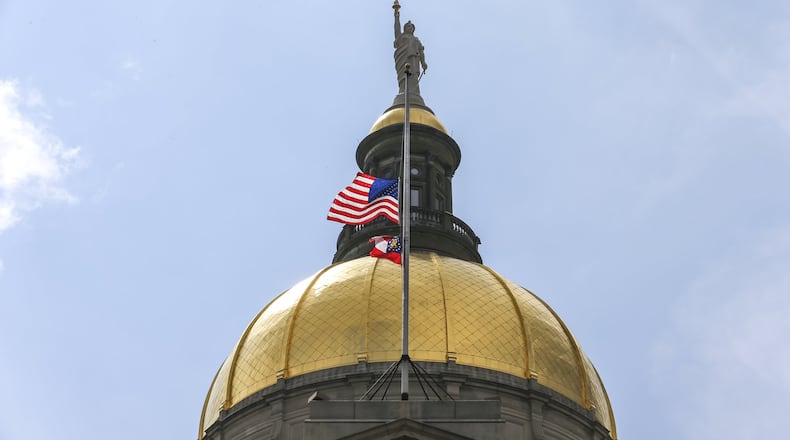A bill pushed by the private probation industry is causing an outcry from criminal justice advocates who say it would enrich businesses at the expense of poor Georgians.
HB 1040, which has cleared several committee hearings and could come up for a vote this week, could drastically increase the amount people pay in fines and fees while on pay-only probation. Judges put defendants on pay-only probation when they can't afford to pay a court fine in full. The probation officers collect monthly payments on the court fine and also charge monthly fees for the service.
Under a 2015 law passed during Gov. Nathan Deal's criminal justice overhaul, pay-only probationers can only be asked to pay three months of service fees to the entity overseeing their probation. The new bill would allow defendants to be charged six months of fees. The fees range from $35 to $50 per month, according to the Southern Center for Human Rights, which has been asking the public to oppose the bill, saying it would cause some indigent people to pay double the amount they would have paid otherwise for court imposed fines.
The bill’s sponsor, state Rep. Emory Dunahoo, R-Gillsville, told lawmakers at a Monday committee hearing that the change is needed because the average defendant spends five and a half months on probation, not three. Seated next to him was former state Rep. Clay Cox, the lobbyist for private probation trade group Community Corrections Association of Georgia, which is pushing the bill.
Cox, who is also president and CEO of private probation firm Professional Probation Services, suggested to the committee that probation officers struggle with heavy caseloads because the companies aren't bringing in enough money.
Sarah Geraghty, managing attorney at the Southern Center for Human Rights, said the bill is “morally wrong.” She said pay-only probation cases require little effort from officers because they are essentially acting only as bill collectors for defendants who need a payment plan. If the companies aren’t satisfied with their profits, they can renegotiate their contracts with the local governments who hired them, Geraghty said.
“What they cannot do is to make up their losses by specifically targeting the poor for extra fees,” Geraghty said. “Remarkably, that is exactly what the companies attempt to do through this bill.”
Dunahoo and Cox couldn’t be reached immediately for comment.
The three-month cap on fees passed in 2015 came after an audit examining probation in Georgia, which has a higher rate of probation than any state and has been fertile ground for private probation companies since 2000. About 80 percent of 200,000 misdemeanor probationers in Georgia are supervised by private probation companies instead of by the state.
State Rep. Ed Setzler, R-Acworth, spoke favorably of the bill in the committee hearing. He said he knew of no other government contractor who would be asked not to bill for all their work.
“If we’re going to ask a contractor of the state to perform a service, there should be appropriate compensation,” he said.
Josh McLaurin, D-Sandy Springs, asked Cox what the cost was to supervise each of the pay-only probationers. Cox didn’t give a dollar amount, causing McLaurin to become suspicious. “We cannot rely on an invisible hand to tell us that the costs aren’t matching the benefits,” McLaurin said.
Vera Cheeks said she was troubled to learn of the HB 1040 proposal this week. Cheeks successfully sued the city of Bainbridge in 2015 for overzealous misdemeanor probation practices. She decided to sue after she couldn't pay a $135 ticket for running a stop sign. Because she couldn't pay, she was put on probation, causing the total she owed to balloon to $267 after probation fees. She's worried more people might end up in similar situations if the bill passes.
“It’s all about money for their pocket,” Cheeks said in an interview Tuesday. “People are so damn greedy.”
About the Author
The Latest
Featured



